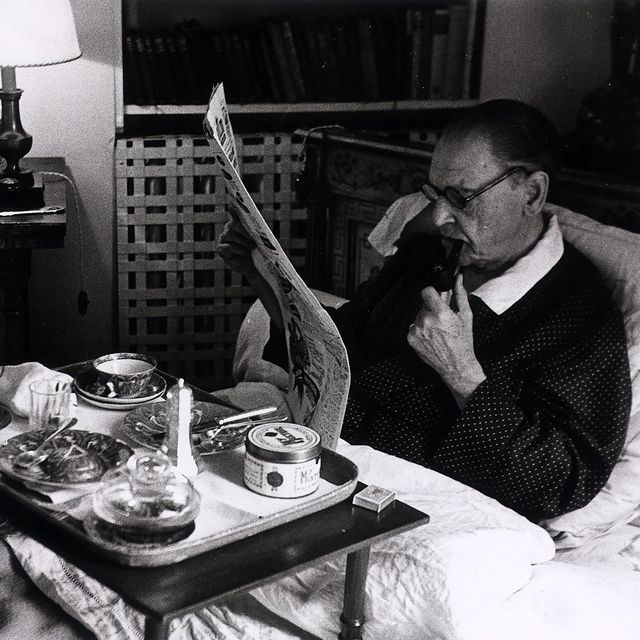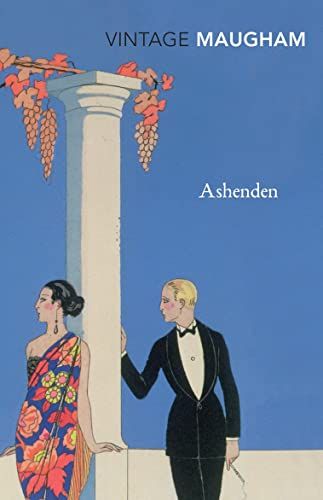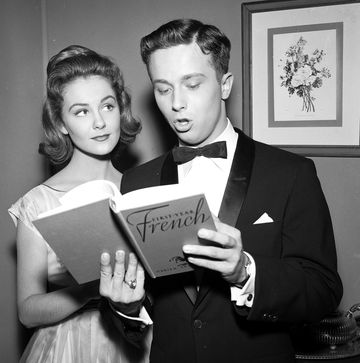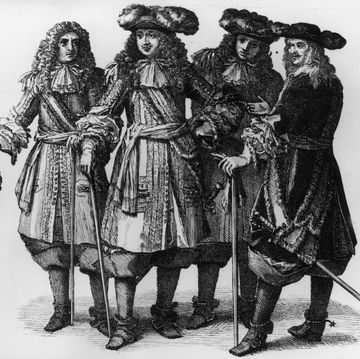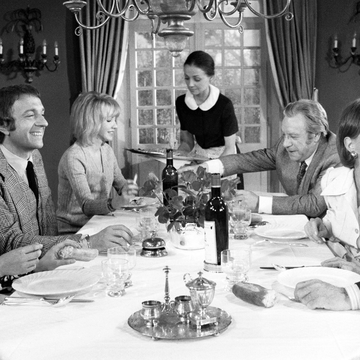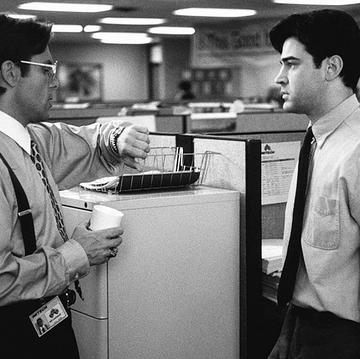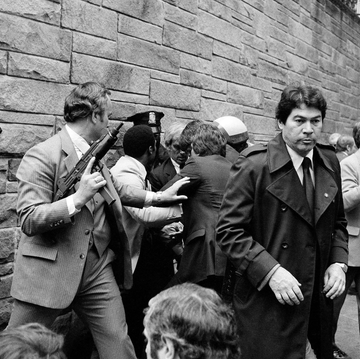Before Bond and his brutal swagger, Harry Palmer's modernist melancholy, and the short, balding but brilliant Smiley, there was Ashenden. Not for him the picaresque shenanigans of Rudyard Kipling's Kim, not Richard Hannay's Boy's Own bravado. Rather, the dry, daily grind of a middle-ranking civil servant. Albeit one undercover, stationed in Switzerland, during the First World War. “The work he was doing was evidently necessary,” Ashenden muses, “but it could not be called anything but monotonous.”
In this, he is merely echoing the views of his creator, short story master William Somerset Maugham [pictured above, having breakfast in the South of France, in 1954], who served in the British Secret Service during WWI and, in 1928, published a book of connected stories under the title Ashenden: Or the British Agent.
“The work of an agent in the Intelligence Department is on the whole extremely monotonous,” repeats Maugham in his introduction. “A lot of it is uncommonly useless. The material it offers for stories is scrappy and pointless; the author has himself to make it coherent, dramatic and probable.” Which he does, with elegant aplomb. Because these tales are anything but dull. The prose is as crips and bracing that first martini, the pace brisk, the characters beautifully drawn.
Just like Maugham, Ashenden has the perfect cover. As a successful writer, he goes to Geneva to write his new play, “a comedy”, as he tells a lumpenly suspicious Swiss policeman, “and a light one at that”. Although Switzerland was neutral, the authorities there took a dim view of spies. He'd been sent to Geneva, “knowing the risks, to do work of a certain kind”. Recruited and run by The Colonel, or R, a man with “hard, cruel eyes... and a cunning, shifty look”, he was very much on his own. “If you do well you'll get no thanks,” he's told, in those eternal words, “and if you get into trouble you'll get no help.”
John le Carré once said that Maugham was “the first person to write about espionage in a mood of disenchantment and almost prosaic reality”. Yet although they lack le Carré's moral outrage, or the casual, luxury-steeped ruthlessness of Bond, the Ashenden stories mix languid charms with a steely core. You won't find fist fights and care chases, killer centipedes and high-tech gadgets. But Ashenden has an exotic pungency of its own: midnight bridge games with Egyptian princes; ice cold countesses of dubious loyalty; traitorous Bengalis; corpulent pashas; alluringly vulgar acrobats; priapically hairless Mexicans, and “emancipated princesses who wore garish frocks and danced with strange men in second-rate cafés”.
Codes are smuggled from France to Switzerland, hidden “deep down between those voluminous breasts” of fat peasant women, and the consequences of treachery are fatal. Jolly English traitors are tricked by Ashenden and sent to their deaths by firing squad; Indian agitators commit suicide with arsenic, while in one story, a beautiful Russian agent is killed by her besotted lover. He works for the opposition. “I loved her,” he cries, “but I knew she must not leave the room alive.” Comedy is tempered with harsh reality. An innocent tourist is assassinated in a case of mistaken identity; the “absurd but loveable” American Salesman Mr John Quincy Harrington, “a bore”, is killed during the Bolshevik uprising in Moscow. All because he won't leave without his laundry.
But it's Ashenden himself who fascinates, wearing both cynicism and compassion equally. He spends as much time fretting about being unable to turn the hot water tap of his bath with his toe (“He had often heard people tell him that he possessed character... but they had never seen him in a hot, but diminishingly hot, bath”) as he does worrying about the consequences of his actions. He arrives for trains hours in advance, suffering from “that distressing malady known as train fever”. And is reassuringly normal, too. Once, when ransacking a suspected enemy spy's hotel room, he admits fear: “You see, I'm scared and you're not.”
He's upper middle-class to his core, with “a cool head and an emotion well under control”. Yet he holds no candle for the Establishment. “The bigwigs,” he snarls, “though ready enough to profit by the activities of obscure agents of whom they had never heard... shut their eyes to dirty work so that they could put their clean hands on their hearts and congratulate themselves that they had never done anything that was unbecoming to men of honour.”
Just like the world in which he works, he can be morally ambiguous: “Ashenden admired goodness, but was not outraged by wickedness.” Such were the necessities of a British spy. Yet the tales are at once funny and moving, grim and glamorous, shot through with pathos and bathos. “How much easier life would be if people were all black or all white,” he wonders, “and how much simpler it would be to act in regard to them!” But this is real life. And death. And nothing ends neatly. These are some of the greatest espionage tales ever written. In Ashenden, Maugham creates an all too human character. Not so much superman, as a spy like us.
Tom Parker Bowles is an editor-at-large at Esquire. This piece appeared in the March-April 2019 issue of the magazine
